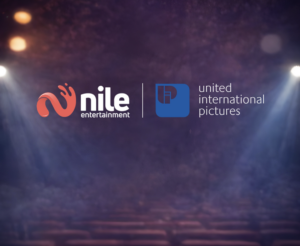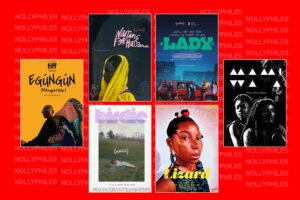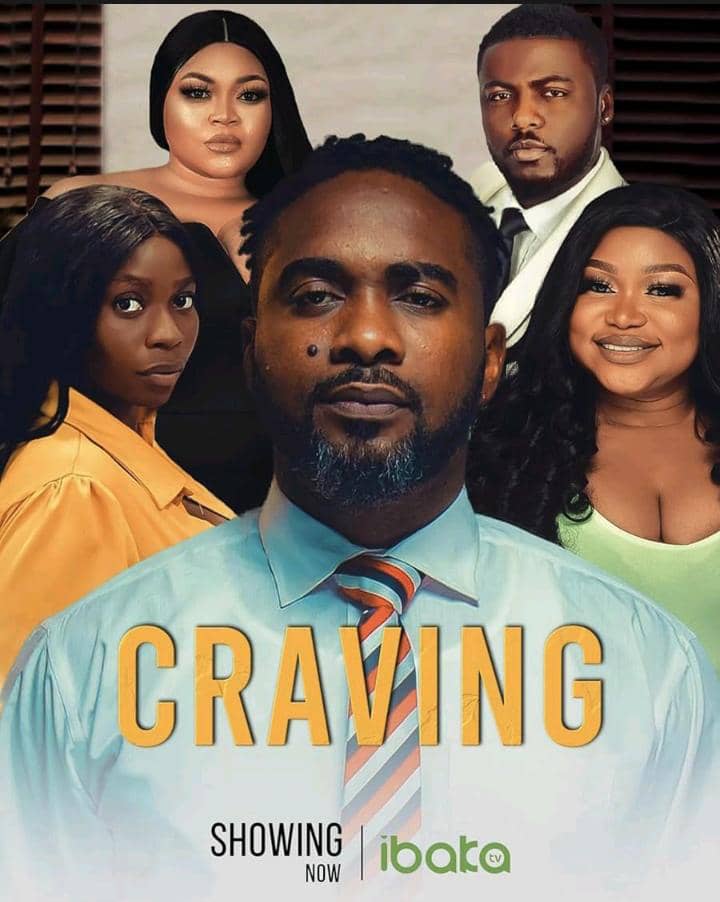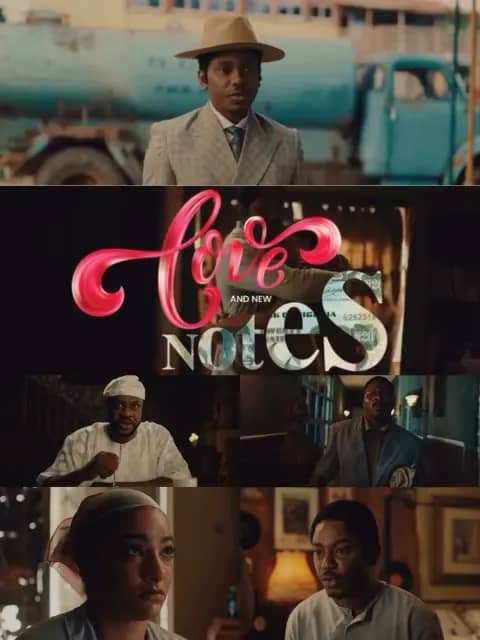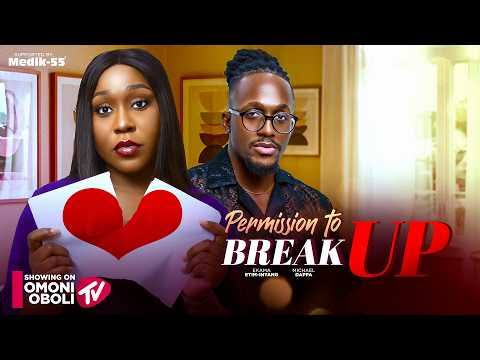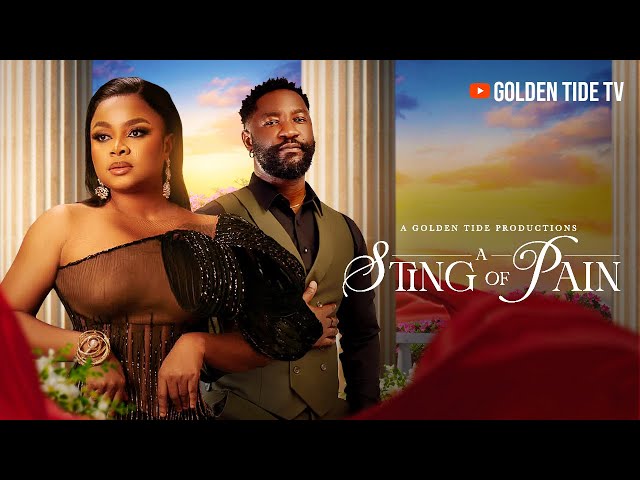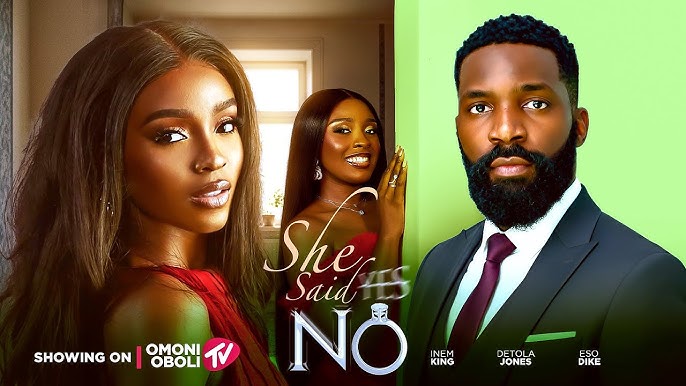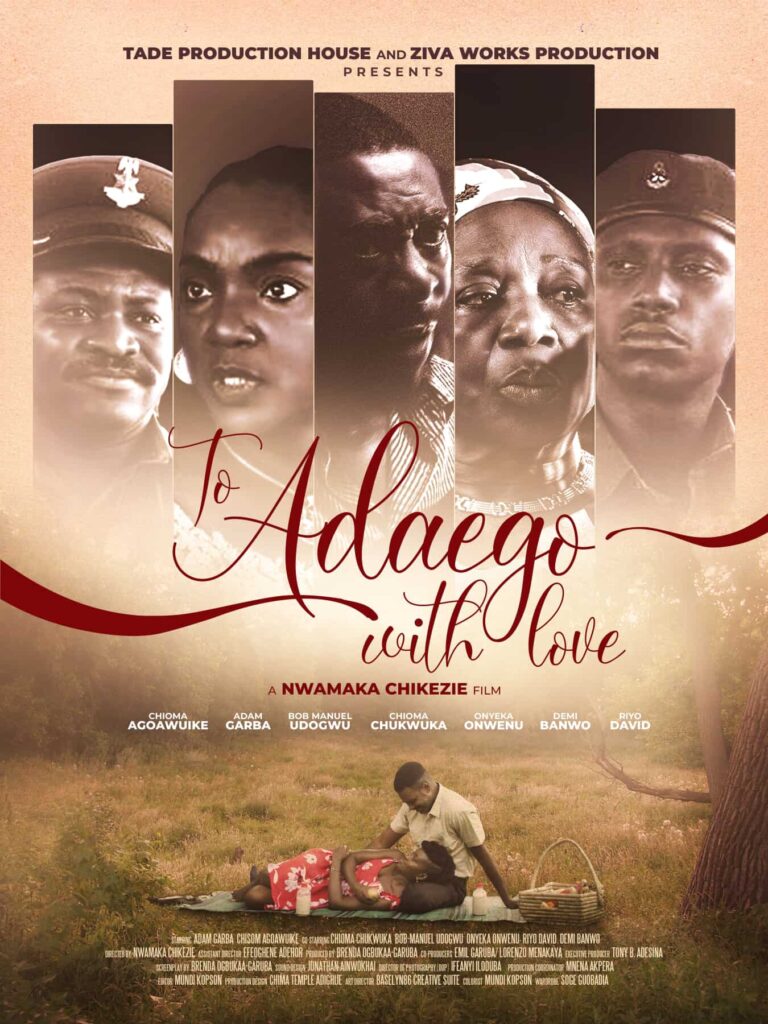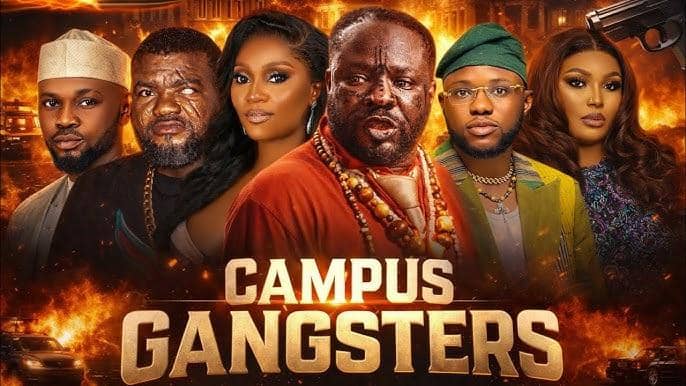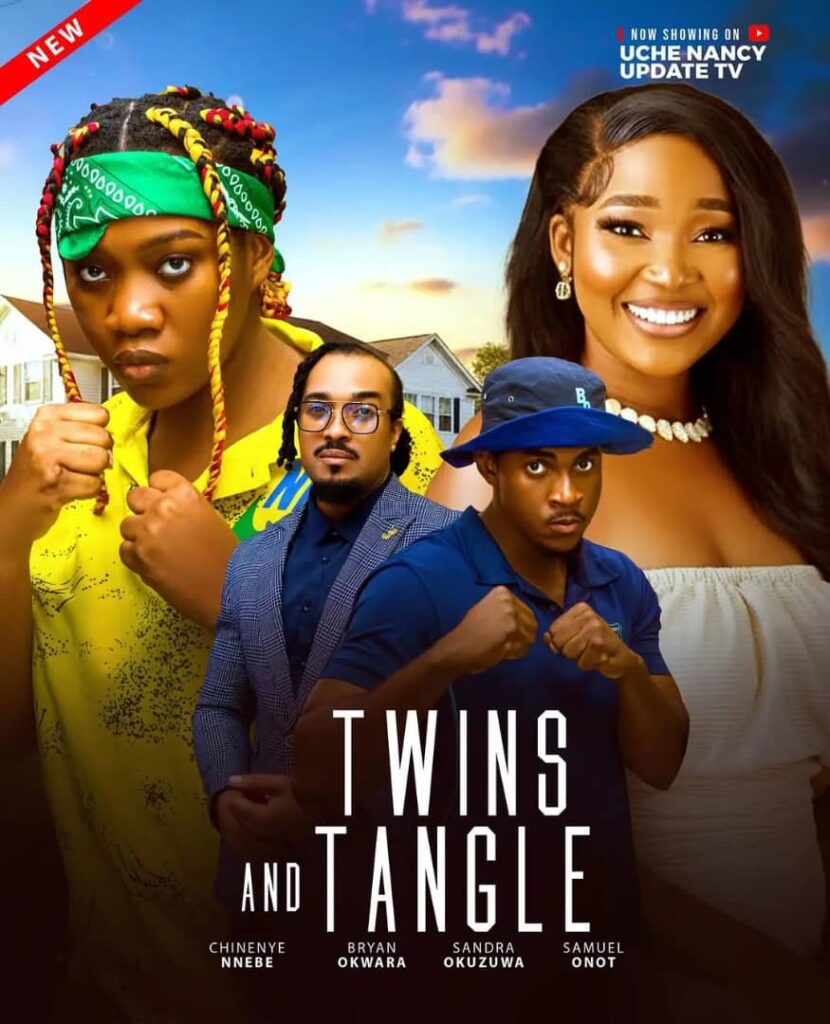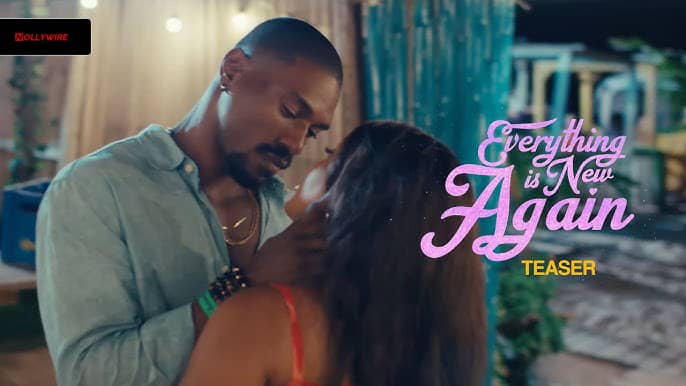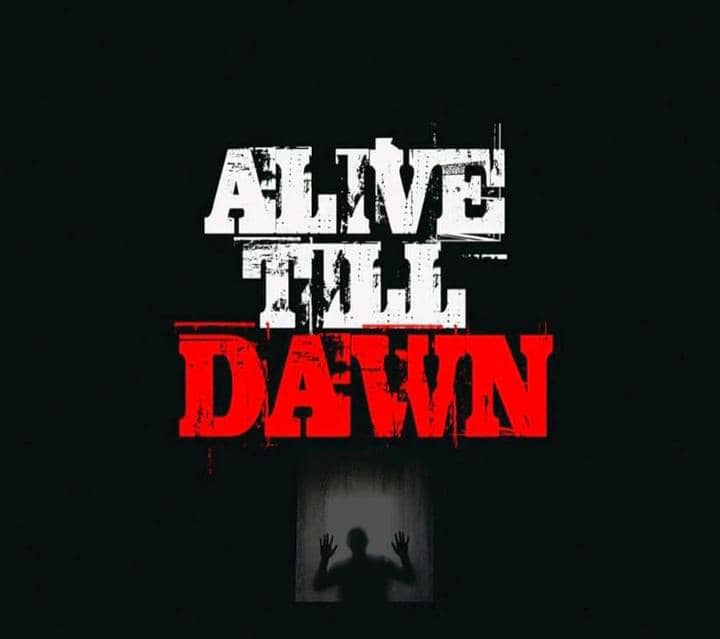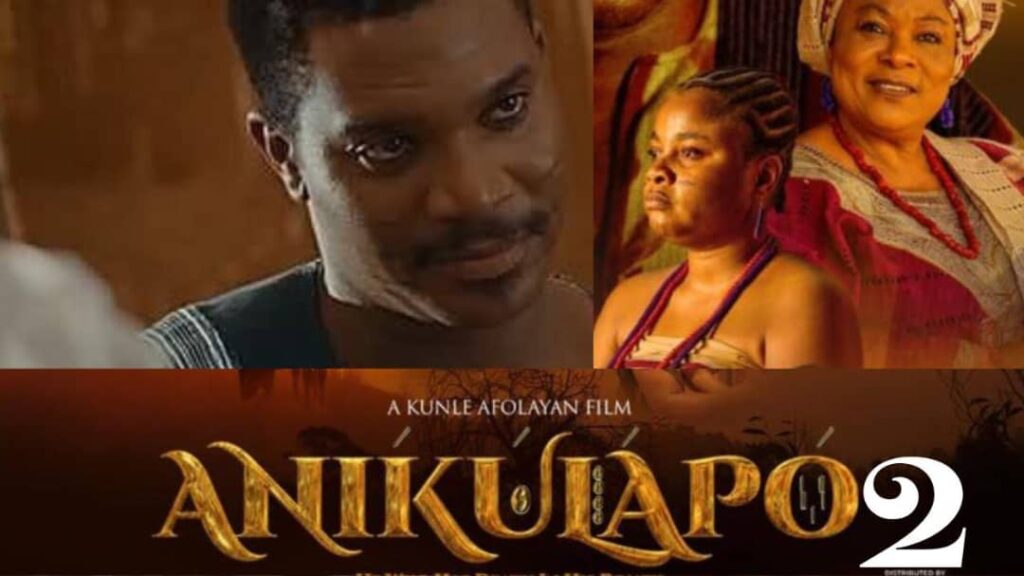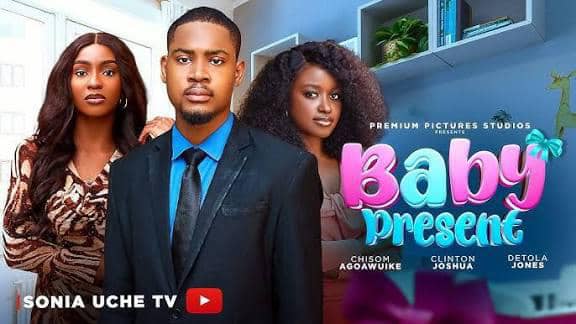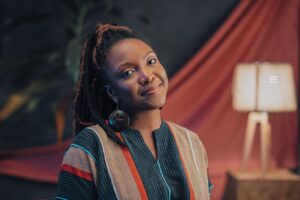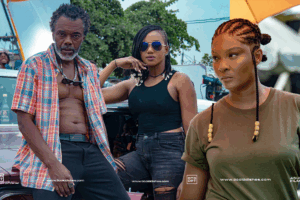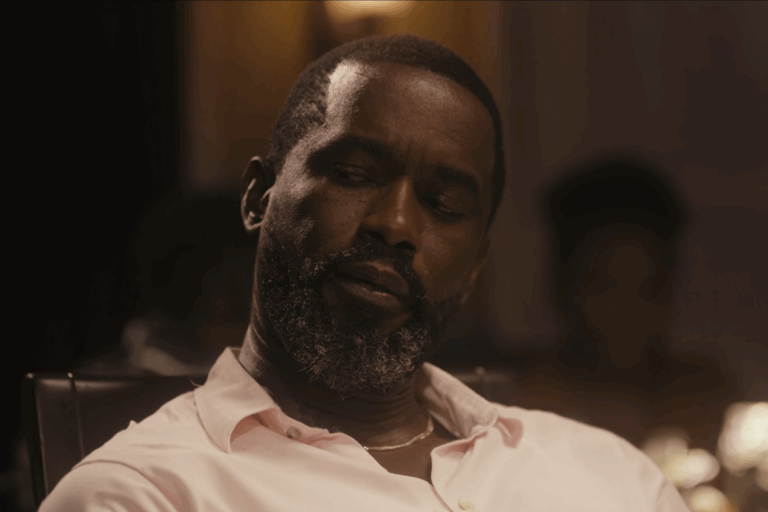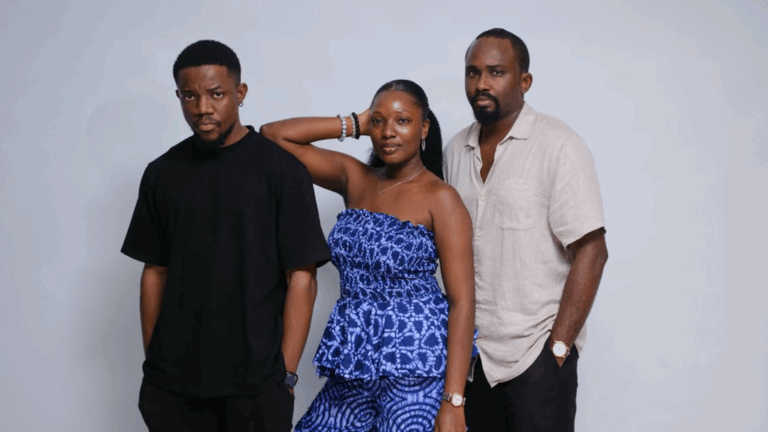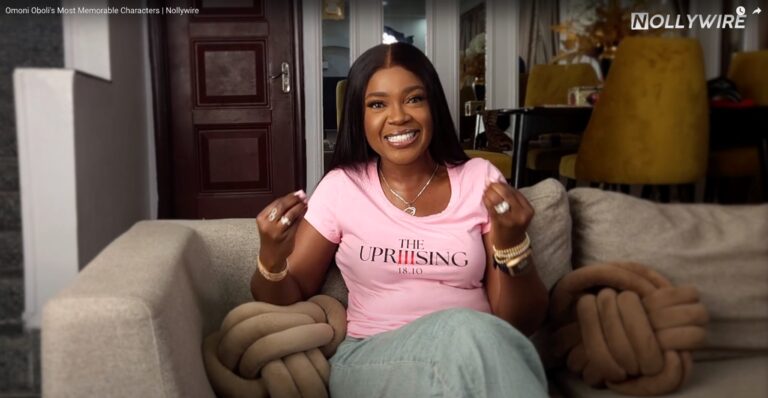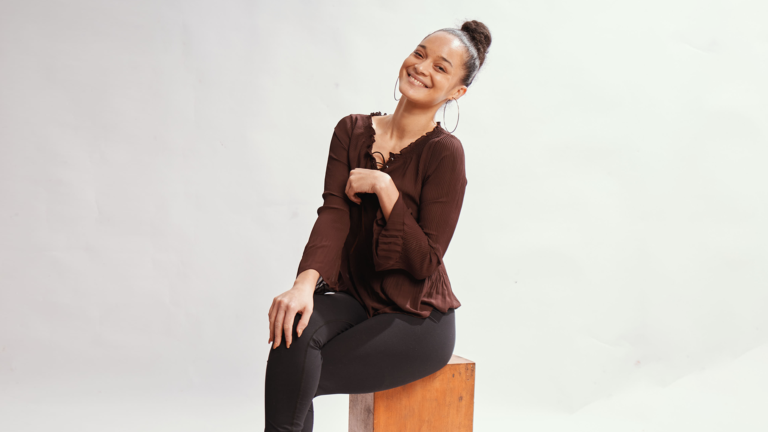At a glance, it looks like a group of regular teenagers trading stories and inside jokes. But at the Teen Actors Roundtable, it quickly becomes clear: these are not regular teens.
They are stars: child actors who’ve become producers, influencers, award nominees, and, in some cases, viral sensations before their 16th birthdays. They have played lead roles, walked red carpets, and heard strangers scream their names in public. But they’ve also stood awkwardly at school assemblies as teachers announce, “One of our students is in a movie!”
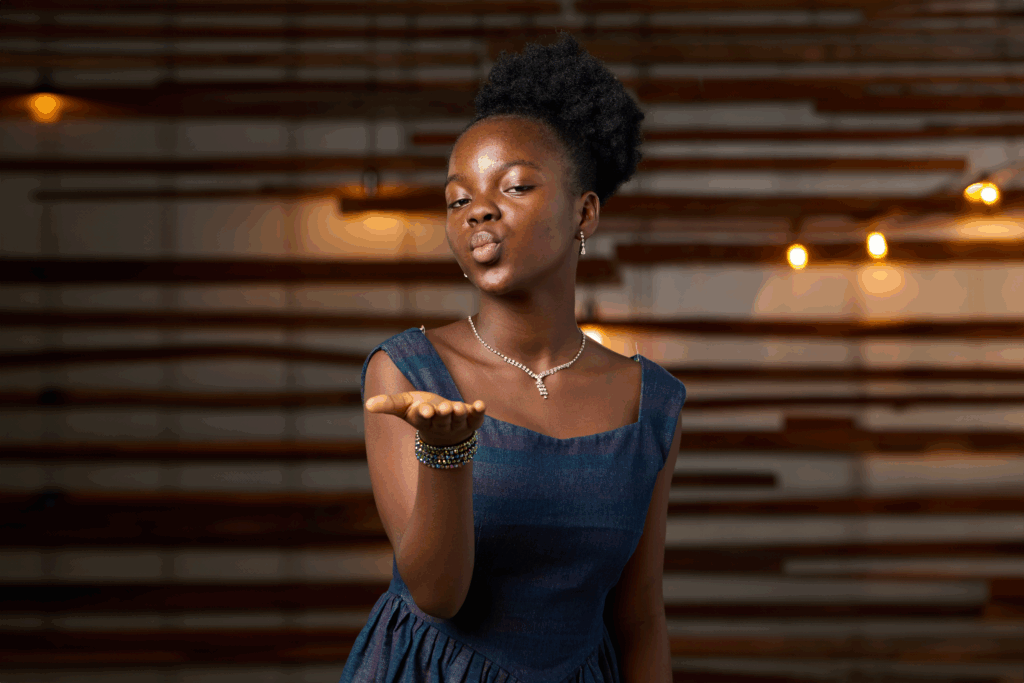
In a conversation led by Blessing Obasi hosted by FilmOne and Nollywire filled with belly laughs, surprising honesty, and unexpected vulnerability, these teens – Fiyin Asenuga, Darasimi Nadi, Sapphire Ekeng, Diana Egwuatu, Khaira Bashir, and Simisola Gbadamosi, many of whom are alumni of Kids Can Act – open up about what it really means to grow up in the spotlight in Nollywood.
They share stories about how their careers began—many through persistence, some through luck. For 15-year-old Sapphire Ekeng, she got her start after practically begging her mum to let her act. Her mother would show her videos of talented kids, and she’d say, “But mummy, I can do that too!” Eventually, she met producer Mary Abubakar, landed her first role in ‘Pawns’, and hasn’t stopped since.
Others found themselves playing leads from day one. “Even though I didn’t really know how to act yet,” says Darasimi Nadi, “They needed a child actor and I looked like someone they had in mind.” Her breakout role in ‘Obara’M’ saw her acting alongside veterans. But behind the scenes? “I cried. I missed my mummy. I had to scroll through her Instagram on set.”
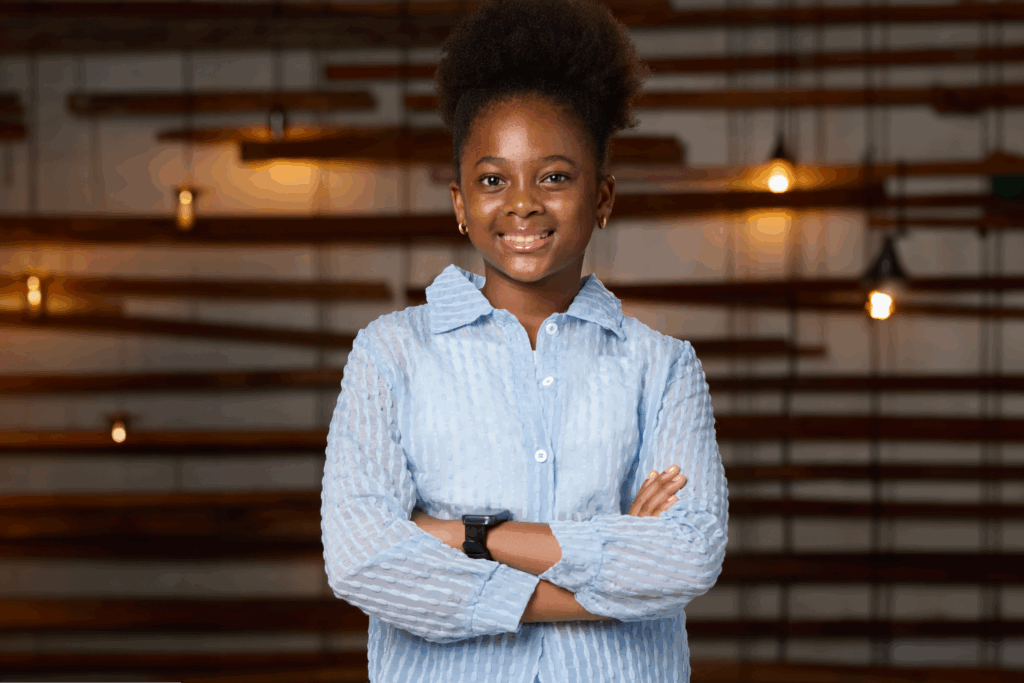
That disarming honesty flows through all their stories. They speak with charm and charisma, but never without grounding. Being famous as a child, it turns out, is just as complicated as it sounds. School is where the lines between normal and “known” blur the most. Khaira Bashir tried to start fresh by transferring to a new school, only for a classmate from her old one to walk in and shout, “She’s an actress!” People kept asking, “‘Why are you in this school? Why not British International or Rainbow College?’” Diana Egwuatu supports as they are all familiar with the line of questioning. “I came here so nobody would know!” they echo.
The same goes for Fiyin Asenuga, who resumed his new school wearing a nose mask only to be outed by a 6-year-old boy. Darasimi Nadi shared how, after years of being in the same school, she entered senior secondary and hoped to stay under the radar with the new students. “My classmates already knew I acted, but they didn’t talk about it because they thought it was cringe,” she says. “But once this boy found out, I couldn’t breathe for, like, two weeks.” While for Simisola Gbadamosi, her face couldn’t escape the entertainment sections of her assembly news after bagging an Emmy nomination.
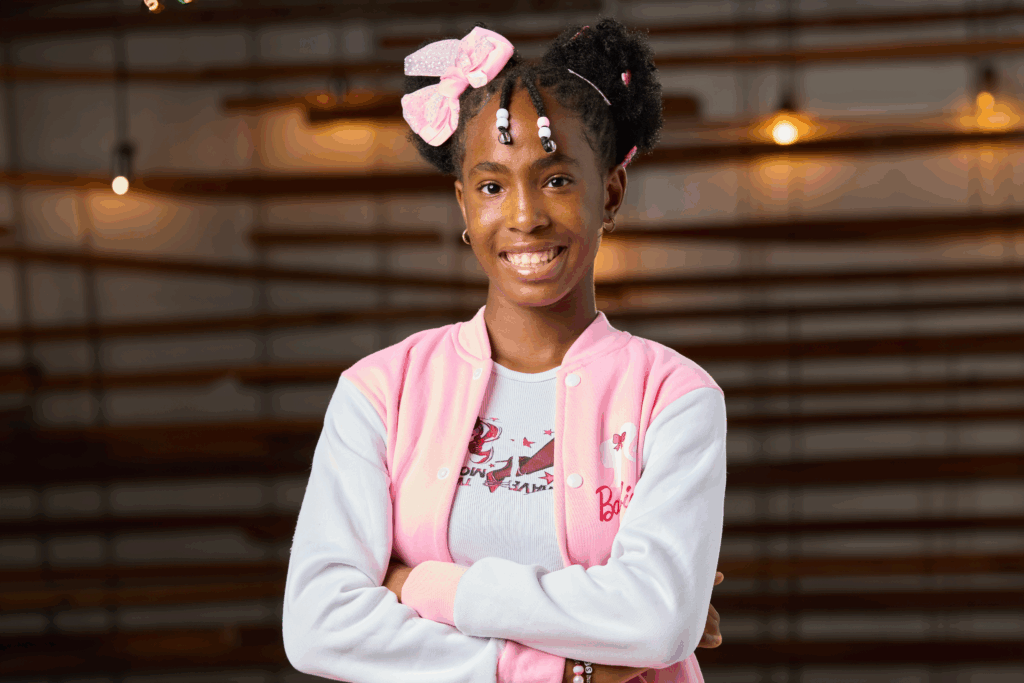
The attention doesn’t stop at school. At parks, cinemas, airports, and even churches, these teens have been recognised. “There was this woman—like in her 40s—she screamed when she saw me,” Asenuga shares. “And then I screamed too. It became a scream-off!” For Egwuatu, she was stopped at JJT Park “One day I was at JJT Park with my family. We were just having fun when these women came up to me and said, ‘Oh my gosh, are you Diana from God Calling? You acted so well! Can I get a picture?” She adds, “They were overdramatic! But it was kind of fun.”
Their vacations are also interrupted sometimes but the purpose is heartwarming. “When I went on vacation last year, I went to speak at a church in the U.S.—I think it was House on the Rock or Redeemed,” Gbadamosi recalls. “After I came down from the stage, there was a girl named Simi—my namesake. She gave me flowers and a handwritten letter. It was so sweet. That moment really touched me.”
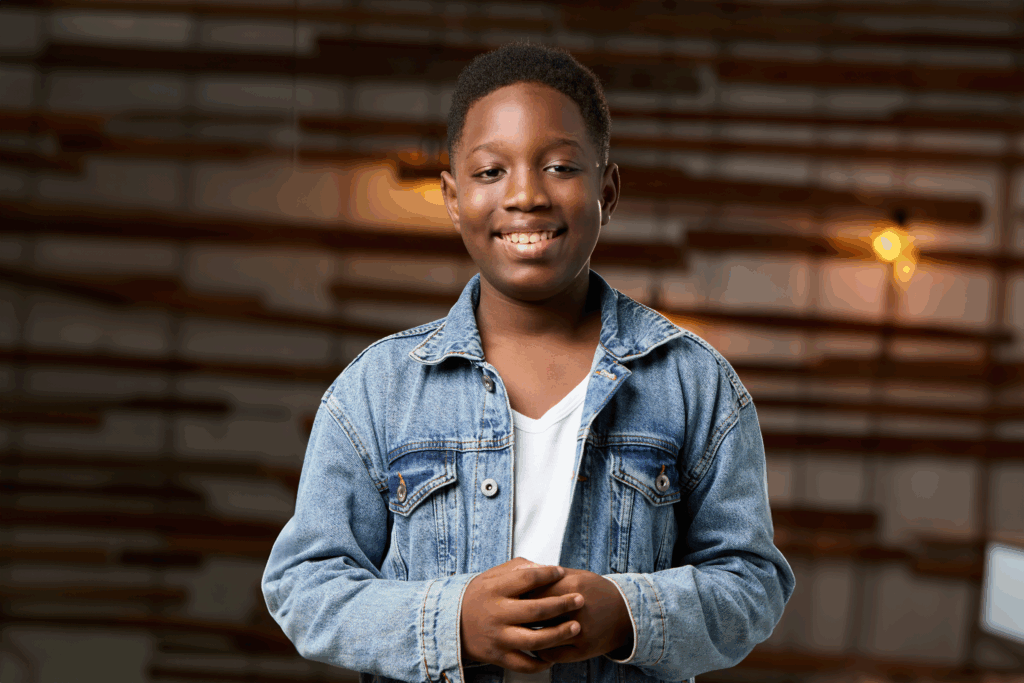
When asked about their best moments, the actors give a mix of hilarious and heartfelt answers. “Food”, Egwuatu says without missing a beat. “Some sets have banger food. Like, a real banger.” For Nadi, it is being nominated for an AMVCA and for Ekeng, it is being invited to youth programmes to speak. “I thought I was going to be talking to toddlers,” she explains. “But it was a room full of teenagers—some even in university. I was like, ‘Oh God, help me.’ But it flowed. Afterward, they were like, ‘Can I have your Snap?’ I realised I could connect with people, not just entertain them.”
Gbadamosi remembers boarding a plane after her Emmy nomination when a Nigerian-American woman approached her mother. “She said her daughter had been going through an identity crisis. But after watching ‘Iwaju’, she wanted to braid her hair and buy ankara. It meant so much to me.”
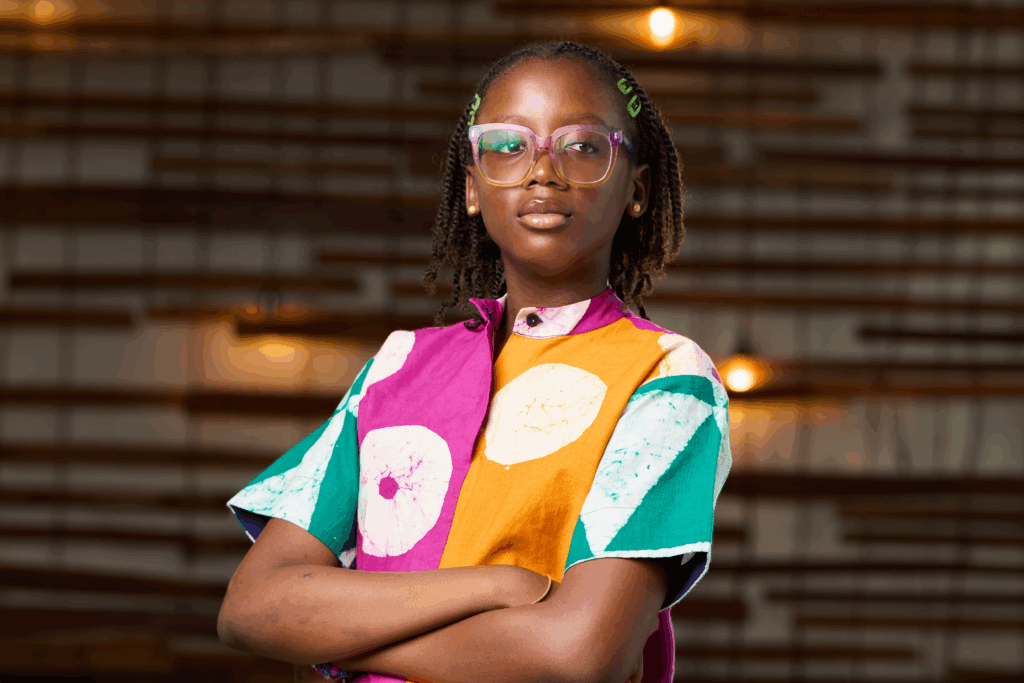
Toward the end of the roundtable, Blessing Obasi asks how they feel about the growing number of child actors in Nollywood today. Everyone lights up. “It’s not just me anymore,” Asenuga replies. “Before, I’d go on set and be the only child. Now? There are plenty. It’s exciting.”
The final question is one that has been lingering; would they keep acting as adults? They all give a resounding yes but Darasimi Nadi wants to do more: pause acting for a while, build her career offline, learn to fly a plane and then make her grand return to the screen. For Simisola Gbadamosi, she wants to add architecture and directing to her outstanding CV.
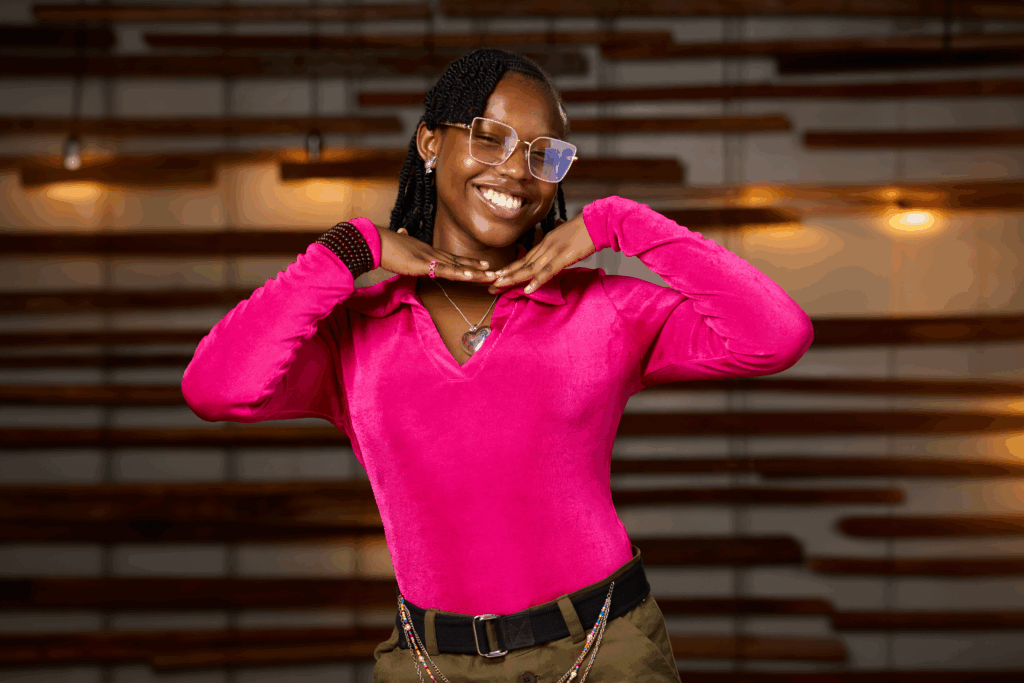
Beneath the red carpets and recognition, the DM fan messages, and the overdramatic park selfies, these teenagers are still navigating math homework, class cliques, and the awkwardness of adolescence. Their lives are lit by stage lights, but they’re also shaped by school bells.
They dream loudly, and they’re not afraid to outgrow the boxes the industry or society sets for them. They are actors. They are students. They are daughters, friends, future architects, and maybe pilots. They are children, yes but children who are changing what Nollywood looks and sounds like. And as Khaira Bashir said, smiling at the roundtable’s close, “If we can do it, you can do it better.”



